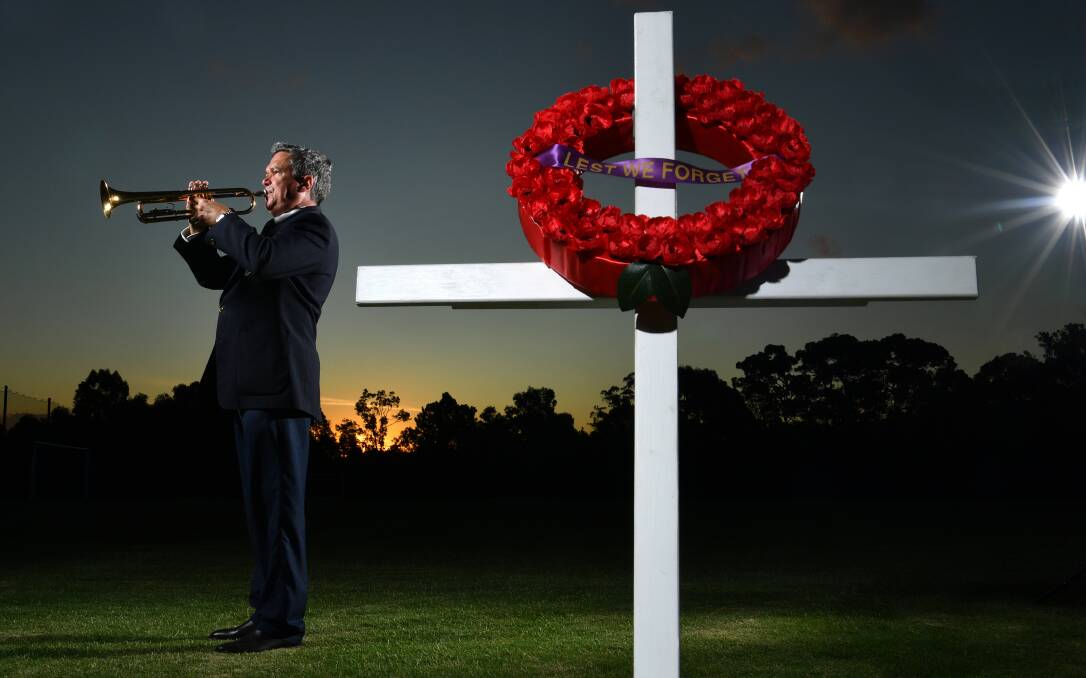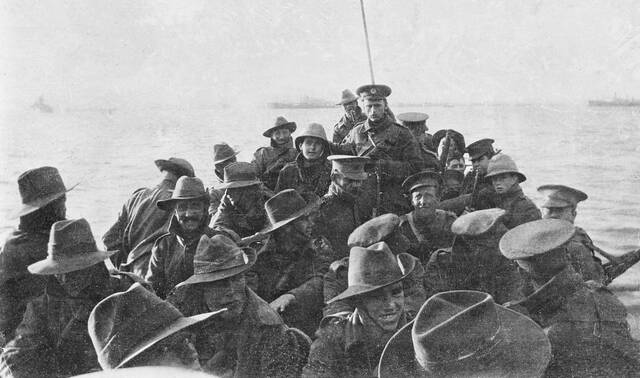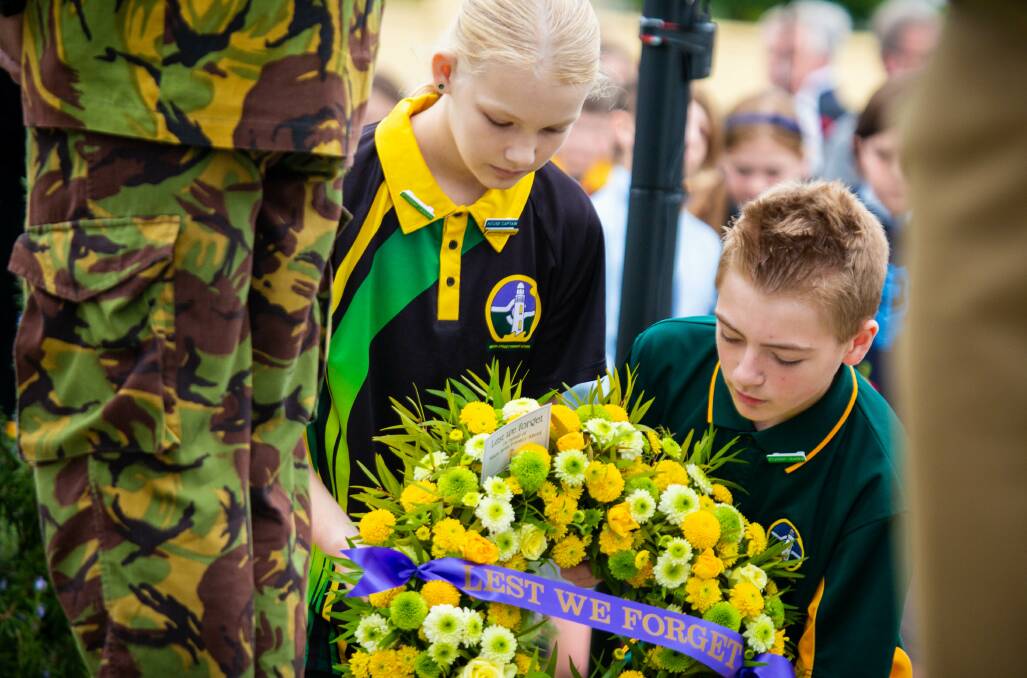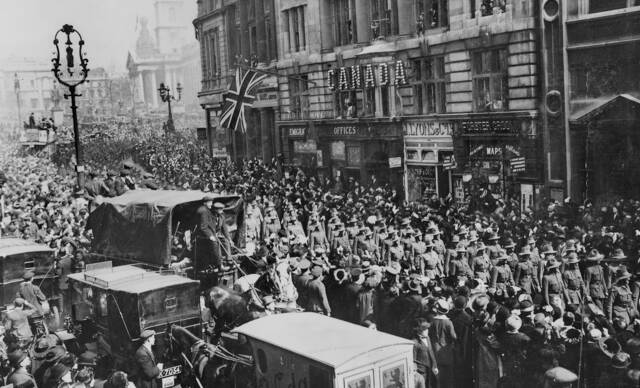Anzac Day traditions are steeped in history and Australian identity
Every year on April 25 Australians commemorate the battle of Gallipoli with dawn services, red poppies and Anzac biscuits.
It's a commemorative day that has become a part of Australia's identity.
Mateship and camaraderie are intimately connected to the resilience and bravery of Australian and New Zealand soldiers.
That bond was seared in our national memory after the Anzacs landed on Gallipoli on April 25, 1915, finding fierce resistance from the Ottoman Turkish defenders. More than 8,000 Australian soldiers died in the campaign.

Anzac Day. Picture by Shutterstock.
Anzac Day and Australian identity
As a newly federated state, WWI represented the first time Australia faced an international conflict as a state independent of Great Britain.
Australian War Memorial senior historian Craig Tibbitts said it was a moment for Australia to become unified.
"It was the first major war that Australia had gone off to as a federated nation, with men and women from all states participating in one unified Australian core, and we were with the New Zealanders as well.
"So there was a sense of being related as part of the British empire, New Zealanders were like our close cousins," he said.
"Gallipoli was really a terrible ordeal, a dreadful campaign, with very high losses for both Australians and New Zealanders, a lot of suffering and a lot of wounded. Comradeship and mateship are always going to be forged in difficult times, such as times of war."

Lifeboat carrying men of the Australian 1st Divisional Signal Company as they are towed towards Anzac Cove on the day of the landing. Picture by the Australian War Memorial.
The first Anzac Day commemorations were held on April 25, 1916. In the following years it was observed as a day for patriotic rallies and recruiting campaigns.
Anzac Day became established as a national day of commemoration in the 1920s for the more than 60,000 Australians who had died during the war.
University of South Australia associate professor and author of 'Finding Gallipoli' Brad West said the mythology of Anzac Day was tied to nationalism.
"It started to serve a commemorative purpose following the war, which saw Australia lose a generation of young men, and so it served a purpose to give that loss meaning and to connect that loss to nation building," he said.
"Throughout the 1980s participation in Anzac Day was declining. There was a resurgence in the 80s, it was marked by a renewed engagement with the idea of Anzac and you see this in the Peter Weir, Mel Gibson, Gallipoli movie."

Nixon Street students laying a wreath at the Devonport Anzac Day Service in 2022. Picture by Eve Woodhouse.
Up before dawn: Remembering the calm before the storm
Thousands of Australians will be up before dawn to attend a dawn service and listen to the Last Post on Anzac Day.
"The dawn service has a fairly unique history that has its origins in Sydney in 1927. And the story goes that a small group of veterans were getting together very early on ANZAC Day, and came across an elderly woman who was placing flowers at the Cenotaph in Sydney. And stopped by and mourned with her," Mr Tibbitts said.
"It's the time that the Anzacs landed at Gallipoli, which was just around dawn, so it sort of gives people an idea of the quiet and the tranquility at that time of day, just before all hell breaks loose when the battle begins."
The pilgrimage to Gallipoli
Every year thousands of young Australians travel to the battlefield at Gallipoli in Turkey to mark Anzac Day in what has become an Australian rite of passage.
Professor West said the popularisation of the pilgrimage to Gallipoli in the 1980s marked a shift in the way the battle at Gallipoli was understood.
"It became a projection of the Anzac legend as more cosmopolitan and worldly than had previously been the case.
"It provided a new ritual form to associate Anzac with international travel and engagement with a foreign exotic culture," he said.
"And to relate to young Australians, who as a group had disconnected from engagement with the Anzac tradition."

Australian and New Zealand troops marching in London on Anzac Day 1916. Picture courtesy of the Australian War Memorial.
Anzac Days's relevance today
Political unrest and diplomatic controversy has prompted a decline in the Gallipoli pilgrimage.
"There's a dilemma post this pilgrimage focus of how do we engage with the Anzac legend in ways that are meaningful?," Professor West said.
New forms of commemorative engagement have invited political controversy. The addition of a new wing and the corporate sponsorship of the Australian War Memorial in Canberra has been highly controversial, with the original cost of $498 million rising by a further $50 million last year.
"It has been criticised by various contemporary veterans, younger veterans, those that have served and been deployed posts 2001.
"They have criticised the money that's spent on commemoration and been critical of Anzac Day, particularly critical of the RSL being more interested in commemoration rather than the welfare of this new generation of veterans."
Professor West said at the local level, new traditions are being forged out of pandemic era celebration restrictions.
"During the pandemic you have a movement away from the kind of grand commemorative practices to more local and neighbourhood based, which provided some of that impetus where people would go to the bottom of their driveway, they'd see their neighbours and play the Last Post and engage at this very local level rather than a kind of mass state level," he said.
"So there's some interesting happenings at the local level in reinventing ways of engaging with national traditions that are meaningful."



























































